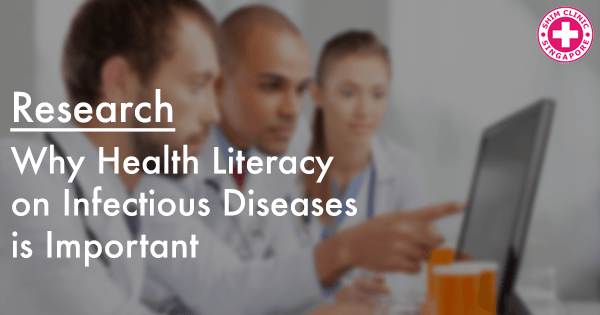Infectious diseases can cause a menace if they are not handled well. Responding effectively to the dangers posed by infectious diseases require different components, including the availability of sufficient medical care, improving people’s living conditions as well as adequate access to education. Enhancing the competence of citizens in approved interventions such as vaccinations and participation in public health measures is also very important. For public involvement to be successful, adequate information and guidance should be provided to individuals so that they know what they need to do. This thus points out the importance of Health Literacy. Health literacy refers to the ability of people to access and use available information to make decisions related to their health. Health Literacy has expanded from integrating functional skills in medical settings to a multifaceted concept involving progressive skills such as the ability to influence the health system and other people.
Guided by this fact, Castro-Sanchez E and colleagues examined the impact of health literacy on infectious diseases in a paper published in the International Journal of Infectious Diseases. The researchers reviewed available literature to identify the nature of existing data that supports the importance of health literacy in dealing with infectious diseases. The researchers searched databases from January 1999 until July 2015 looking for studies that reported on health literacy and infectious diseases such tuberculosis, malaria and influenza. The researchers also studied materials on infection-related behaviors including vaccination and hand sanitation. The researchers, however, did not include HIV in their study because exhaustive reports on HIV already exist.
The researchers used search terms suitable to the requirements of every database. The search terms contained the words ‘health literacy’ combined with terms such as gonorrhea, chlamydia, bloodstream infection, influenza, STD, tuberculosis, bacteraemia, dengue or clostridium.
Behaviors and Knowledge
708 references were initially retrieved using the selected search criteria across all databases. The search resulted in 539 unique papers. Finally, 39 studies were shortlisted for the review. Evidence found in the data reviewed revealed the influence of Health Literacy in various infections and infection prevention methods. The study found that limited or insufficient Health Literacy was associated with minimal take up of preventive measures such as immunization and efficient knowledge on using antibiotics to treat infections.
The study also found that there are different circumstances that affect people’s ability to understand the information given, follow health instructions and ultimately decide effectively on the direction to take in regards to their health and care. Some of these factors include individual’s education and socioeconomic standing. The study found that health literacy has unfortunately received limited attention so far. The study revealed that there is a shortage of materials dealing with Health Literacy which could consequently be an influence on the availability of health information to people.
Infectious diseases compose one of the greatest challenges for healthcare institutions. Effective solutions lie in acknowledging the vital role people play. This thus calls for increased population self-efficiency. However, the social and clinical impact of Health Literacy remains largely unexplored, with most vulnerable groups likely to be affected by the double burden of low Health Literacy and increased infections.
Original article found here:
Castro-S´anchez E, Chang PWS,Vila-Candel R, Escobedo AA,
Holmes AH, Health literacy and Infectious Diseases: Why does it matter?, International
Journal of Infectious Diseases (2016), http://dx.doi.org/10.1016/j.ijid.2015.12.019

